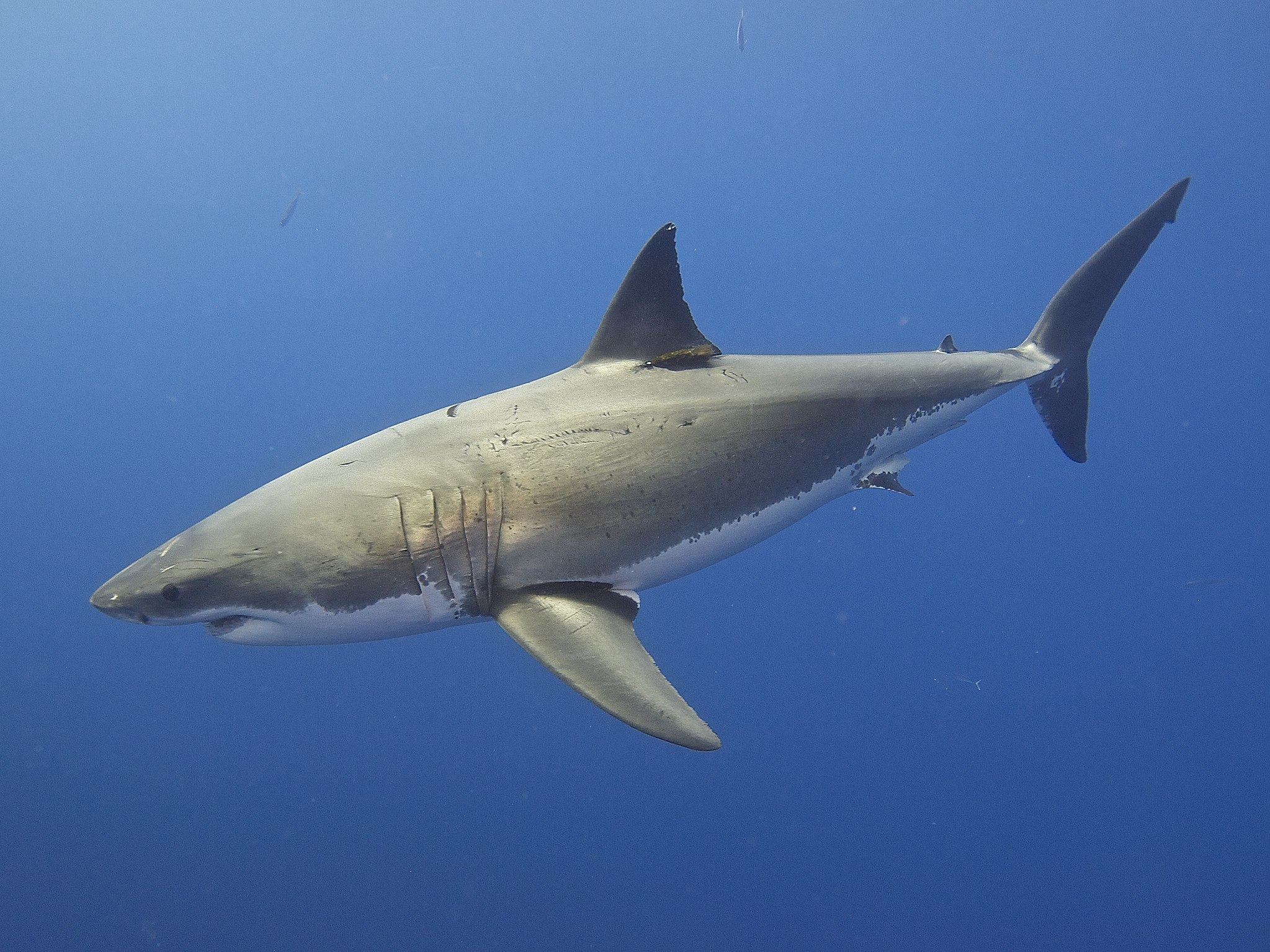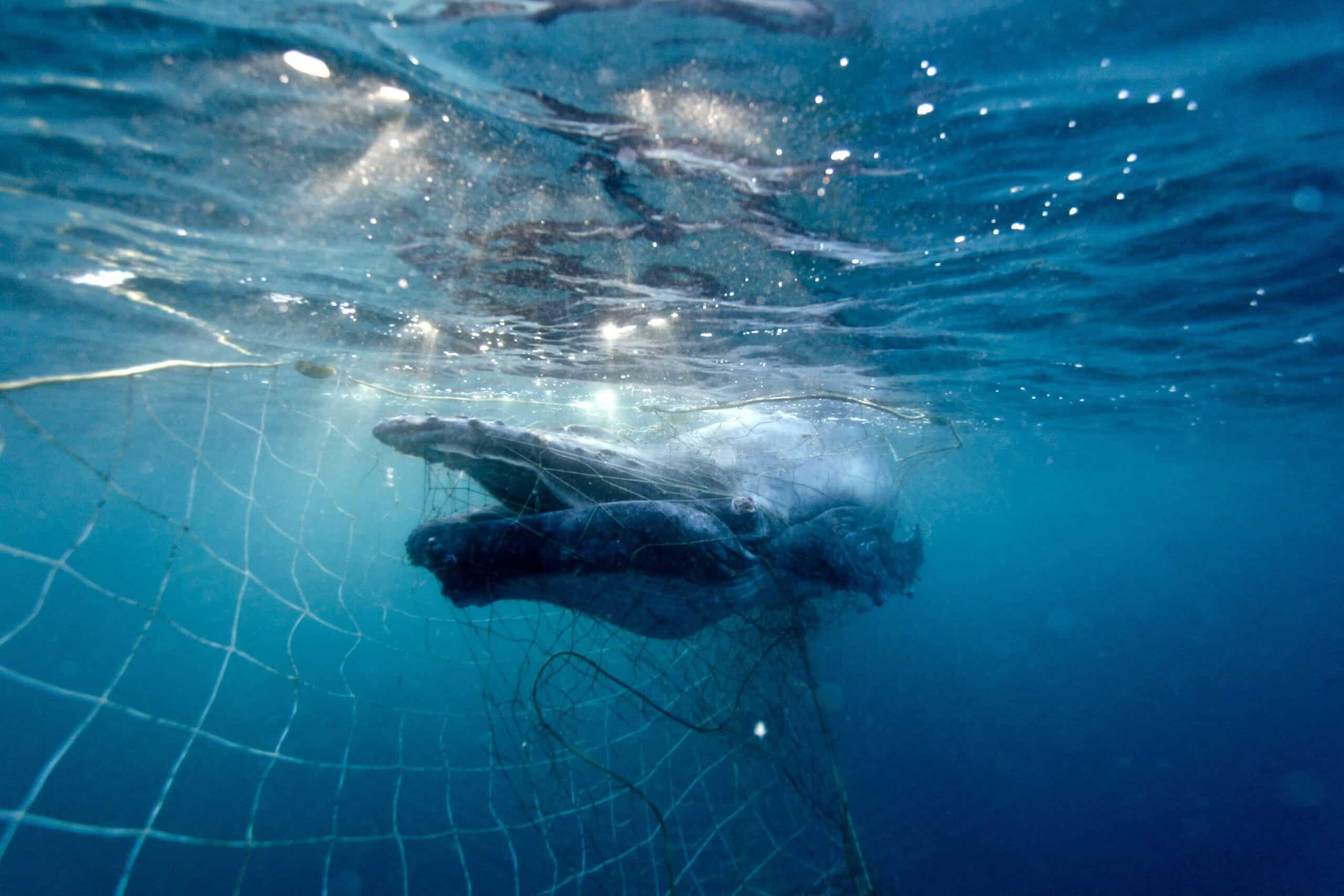Research shows that Australia’s great white sharks are highly related to each other and may consist of fewer than 500 breeding animals. SYDNEY, 24 June 2025: Latest research has found Australia’s great white shark population is much smaller than expected, increasing their vulnerability to further population threats. The population...
It’s that toothy time of year again – Shark Week! And though primarily an American phenomenon, Shark Week inevitably reaches Australian shores through streaming services and what seems to be endless social media stories, plugs, and reactions . While recent years have seen a shift away from sensationalism and towards science, insight, and fact, it’s impossible to deny the real driver and draw of Shark Week: fear.
With program titles like Great White Serial Killer, Mega Predators of Oz, and Clash of Killers, the sensationalism and fear-mongering isn’t exactly subtle.
For the early human, fear was good. Fear made our ancestors cautious of the unknown; fear forced us to prepare for any outcome, and protected us from potential harm. Fear plays the same role today. A fear response was evolutionary advantageous to our ancestors, helped them survive, and has thus been passed down to us.
But what role does fear play in our society today? Bereft of any real risk to life and limb in our typical day to day, fear is more likely now to be enjoyed at a trip to the cinemas, at the top of a rollercoaster, or any number of thrill-seeking ventures. Fear can be fun, but in wild, uncontrolled environments it is evolutionarily hard-wired into us, and impedes us from thinking rationally. In certain situations, fear can be dangerous. When fear clashes with science and impedes our logic, it inhibits our progress as a society.
Fear is what makes Shark Week so popular, but it is also what keeps shark culling programs in operation.
Our fear of sharks blinds us to the logic. While each event is undeniably traumatic, the real risk of shark bite is incredibly rare. We’ve all heard the stats: bees, birds, cows, dogs, buffalo, bison, hippos, and horses each kill and injure more people than sharks every year. Why aren’t we all wearing bee nets around us everyday?
When this is the case, when shark/human interactions are so rare, why do we expect anything a government can do will actually protect us? The rare and completely random nature of these interactions make culling utterly pointless; in addition to being wasteful, cruel and an attack on our ocean ecosystems.
Humane Society International (HSI) won a court case against the Queensland Government, to end deliberate culling in their Shark Control Program. The Great Barrier Reef Marine Park Authority (GBRMPA) issued a 10-year permit to the Queensland Department of Agriculture and Fisheries (QDAF) that allowed them to operate lethal drumlines within the Great Barrier Reef. HSI argued that issuing such a permit was in direct violation of their mandate to “conserve the ecological viability of the Great Barrier Reef.”
The Administrative Appeals Tribunal (AAT) heard evidence and expert testimonies that culling sharks does not reduce to risk of shark bite, and that Queensland’s Shark Control Program contributed significantly to the declines in tiger shark populations, thereby negatively influencing the health of the Great Barrier Reef. The Tribunal found the evidence to these points to be “overwhelming,” and decided in favour of HSI, ending the lethal component of the Shark Control Program within the boundaries of the Reef. This means sharks caught on drumlines can no longer be shot, but now must be tagged, relocated and released alive where possible.
Though this ended the lethal component of the Shark Control Program in the Great Barrier Reef, the program still operates as usual throughout the rest of the state. (Additionally, New South Wales still operates a Shark Meshing Program, killing turtles, dolphins, whales and rays along with the targeted sharks.)
Our fear of sharks has led us down dangerously illogical and unscientific pathways, and it’s hurting our oceans. So let’s celebrate this Shark Week with fascination, fact and curiosity, not the fear of man-eaters lurking in the depths. With the support of the Shark Conservation Fund, HSI has partnered with the Australian Marine Conservation Society (AMCS) to create Shark Champions, a campaign to dispel fear and promote conservation of sharks and rays here in Australia and abroad.
HSI has successfully nominated shark species such as great white, grey nurse, and hammerhead sharks for federal and state protections, and has also nominated species for protection under international conservation instruments such as the Convention on International Trade in Endangered Species (CITES) and the Convention for the Conservation of Migratory Species (CMS). Over the last two years, HSI and AMCS have nominated some lesser-known species of sharks and rays that are nevertheless under great risk. These species include:
|
Whitefin swellshark |
Cephaloscyllium albipinnum |
|
Longnose skate |
Dentiraja confusus |
|
Grey skate |
Dipturus canutus |
|
Narrow sawfish |
Anoxypristis cuspidata |
|
Colclough’s shark |
Brachaelurus colcloughi |
|
Sydney skate |
Dentiraja australis |
|
Green-eye spurdog |
Squalus chloroculus |
|
Eastern angelshark |
Squatina albinpunctata |
|
Feshwater sawfish |
Pristis pristis |
|
Saddled Swellshark |
Cephaloscyllium variegatum |
|
Spotted shovelnose ray |
Aptychotrema timorensis |
|
Maugean skate |
Zearaja maugeana |
|
Coastal stingaree |
Urolophus orarius |
|
Greenback stingaree |
Urolophus viridis |
|
Yellowback stingaree |
Urolophus sufflavus |
|
Sandyback stingaree |
Urolophus bucculentus |
We at HSI and Shark Champions stand for all sharks and understand them to be sources of fascination and wonder, not fear. Let us reject the sensationalist and misrepresentative roles they play in Hollywood and across mainstream media and instead celebrate sharks for their beauty, grace and the vital roles they play in our oceans.
Header image: iStock-Grisha Shoolepoff
A marine ecologist specialising in conservation, research and outreach, Lawrence has spent years working with wildlife, the ocean and the public to engender sustainable relationships between them. He has worked as a field biologist, environmental consultant, naturalist and project coordinator with a BA from the University of San Diego, and an MSc from James Cook University. Lawrence’s work at HSI is currently focused on shark welfare and protection, specifically in regards to culling and control programs, overexploitation, and international protection.


